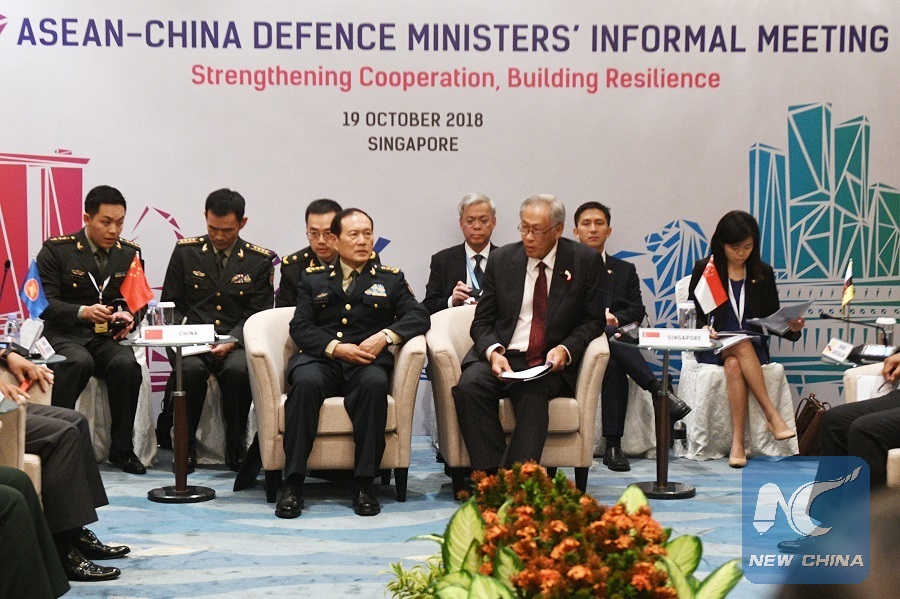
Chinese State Councilor and Minister of National Defense Wei Fenghe (L, Front) attends the 9th China-ASEAN Defense Ministers' Informal Meeting inSingapore, on Oct. 19, 2018. (Xinhua/Then Chih Wey)
SINGAPORE, Oct. 20 (Xinhua) -- The 5th Association of Southeast Asian Nations (ASEAN) Defense Ministers' Meeting (ADMM)-Plus wrapped up here Saturday, with Chinese State Councilor and Defense Minister Wei Fenghe being one of its participants.
The meeting was attended by the Defense Ministers of ASEAN member countries as well as ASEAN's eight Plus partners, namely Australia, China, India, Japan, New Zealand, Republic of Korea, Russia and the United States. It was chaired by Ng Eng Hen, the defense minister of Singapore which takes over the chairmanship of ASEAN this year.
Wei said in his speech that the Asian region is confronted with severe challenges in combating terrorism, and only concerted efforts would prove to be an effective way to cope with the situation. During recent years, the Chinese military has strengthened mutual trust and military exchange mechanism with relevant countries in the region, and will continue to do so in order to safeguard regional stability.
The Chinese defense minister noted that the international arena is witnessing profound changes, and there still exist a lot of destabilizing factors and uncertainties in the world. Chinese President Xi Jinping's proposals of creating a community of shared future for mankind and of building an Asian community with shared future provide new ideas to tackle the security dilemma as well as to maintain regional and even global peace and prosperity, Wei added.
The 5th ADMM-Plus Defense Ministers issued two Joint statements on Preventing and Countering the Threat of Terrorism and on Practical Confidence-Building Measures.
On the sidelines of the meeting, the Chinese defense minister met separately with the defense ministers of Singapore, the United States, Laos, New Zealand, Thailand, Japan, Australia and the Republic of Korea, with whom Wei exchanged views on issues of common concern.

